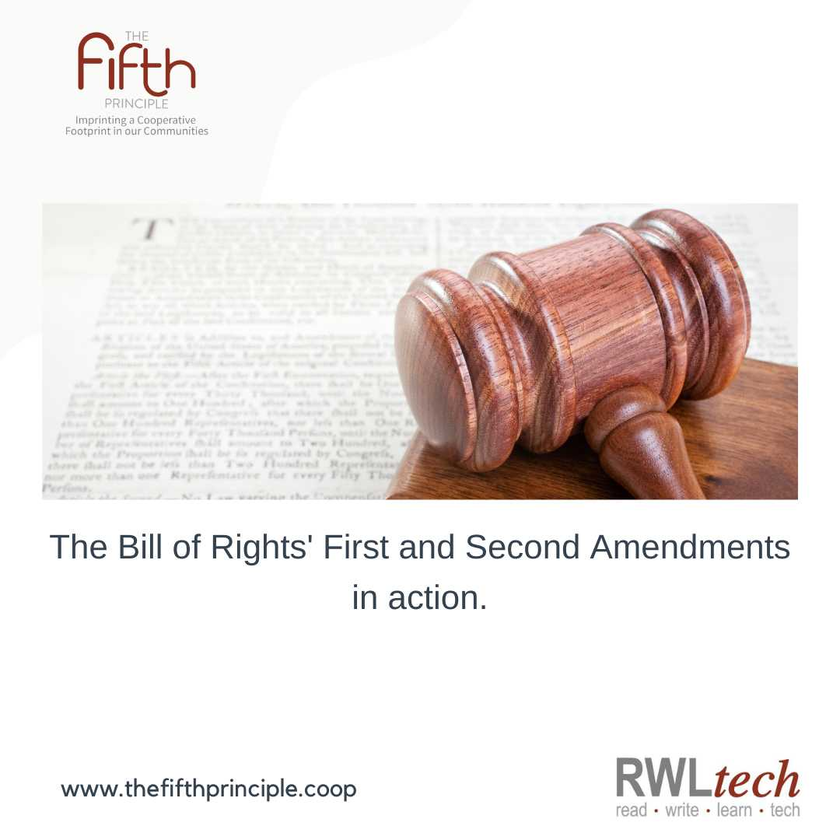The Bill of Rights' First Amendment secures various crucial rights, such as freedom of speech, freedom of the press, and the right to peaceably assemble and petition the government for a redress of grievances, alongside prohibiting the government from favoring or establishing any particular religion, although it doesn't imply a separation of church and state. Meanwhile, the Second Amendment safeguards the right to bear arms, and the Third Amendment prohibits the government from compelling homeowners to allow soldiers to use their homes.
Do you want to learn more about what you can do to act NOW! and save our constitution.
https://www.thefifthprinciple.coop/wcid.html
Take your learning to the next level:
✍️Learn about historical events that shape our future. Flashback to a Fabulous Future.
https://www.voiceamerica.com/show/4117/flashback-to-a-fabulous-future
✍️ Join us on our learning Journey to Plymouth, MA on August 30, 2023 – September 4, ...


Join us for this great home school summit! https://greatdiscovery.ai/homeschool/416328/
I encourage YOU to employ what I call "Harmonic Leadership," which is a really evocative name. Let's explore the core philosophy behind that title and what it means to lead harmonically?
This is a concept I chose very intentionally. For too long, we’ve associated leadership with a single, loud voice—a soloist. But the most successful, innovative, and resilient teams don't operate like a solo act; they operate like a symphony or a great jazz ensemble.
Harmonic Leadership is built on a simple but profound idea: a leader's primary role is not to be the best player, but to create an environment where every musician (person) can play their best, together. It’s not about everyone hitting the same note—that's unison, not harmony. Harmony is when different, diverse notes combine to create a sound that's richer and more beautiful than any single note (person) could be on its own.
So, to lead harmonically means you are focused on tuning the team. You’re listening to the dynamics, blending ...













